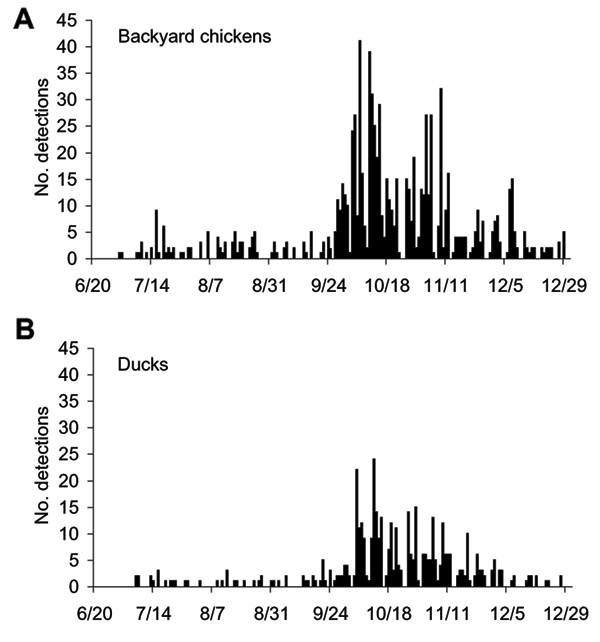Volume 11, Number 11—November 2005
Synopsis
Highly Pathogenic Avian Influenza H5N1, Thailand, 2004
Figure 4

Figure 4. Infected flocks by day of detection and type of poultry, January–May 2004 (panels with "-1" suffix) and July–December 2004 (panels with "-2" suffix). A) Backyard chickens. B) Ducks. C) Broilers. D) Layers.
Page created: February 17, 2012
Page updated: February 17, 2012
Page reviewed: February 17, 2012
The conclusions, findings, and opinions expressed by authors contributing to this journal do not necessarily reflect the official position of the U.S. Department of Health and Human Services, the Public Health Service, the Centers for Disease Control and Prevention, or the authors' affiliated institutions. Use of trade names is for identification only and does not imply endorsement by any of the groups named above.